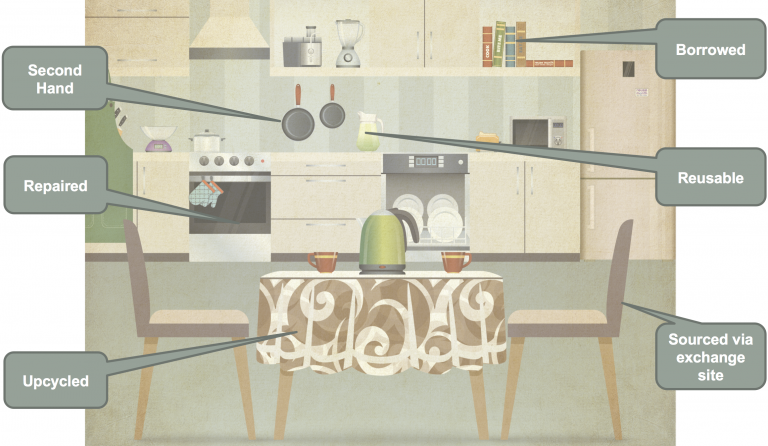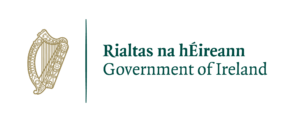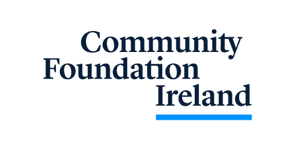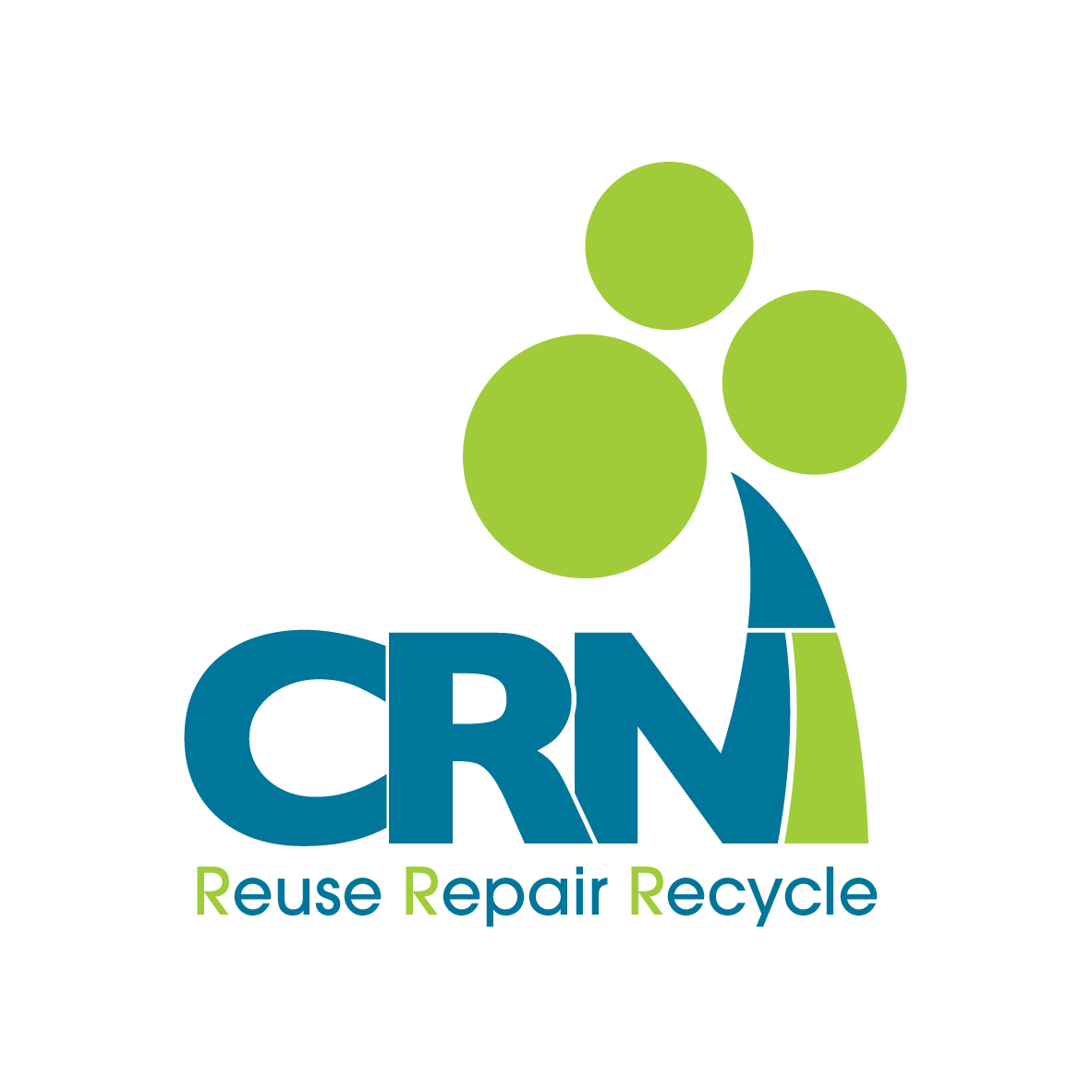Reuse in the Home – Everyday Habits
- Home
- Reuse month
- Blog
- Reuse in the Home – Everyday Habits

By Claire Downey, Executive at CRNI
There are so many environmental, social and economic benefits to re-using – from saving on carbon emissions to creating local jobs and training opportunities and investing in the local community. However, it isn’t always easy to make re-use part our everyday lives and very often it’s hard to know where to start.
In my experience, it’s easiest to develop one new habit at a time based on which kinds of actions will work for you and your lifestyle or location. You might not have access to a lot of second hand goods locally, but could start to bring a travel mug with you to get it refilled or could talk to your neighbours about sharing tools.
When I stopped buying new clothes, I started a habit of dropping into my local charity shop whenever I have time for a quick scan or going to a Babymarket (which both have great social benefits too!). If I don’t have time for those and want something very specific, I’d always check free options first at FreeTrade Ireland or WeShare (where you can also borrow!) and then buying on Adverts.
Finding helpful and quality local repair services also helps to make repair attractive (see the National Repair Directory here). I’m delighted to have found a master cobbler near our CRNI offices just this week, who does fantastic shoe repairs (including for celebrities like Beyonce!) and has rescued some of my very hard worn heels. Up until now, my old scruffy shoes were building up as other cobblers I’d tried kept turning down jobs or were less reliable.
Another new part of my reuse (refill) routine is making yoghurt at home – it took a while to get used to, as there are a few steps – but now I don’t have to buy & throw away yoghurt pots and instead reuse my own jars.
I still have a lot more to do, and a big bugbear at the moment is restaurants & cafes that automatically add straws to children’s drinks. I just keep forgetting to ask them not to. So that’s my next habit to form.
Check out the suggestions on our “Learn” page for more ideas of what you could take on. And since habits take 21 days to form, there’s still time this reuse month to get one going!
Sign up to our quarterly newsletter for more information on reuse and recycling and be part of Ireland’s only reuse and recycling network. For information about our privacy practices, see here.
Our funders

Department of Climate, Energy and the Environment
CRNI receives core and operational funding through the Department of Climate, Energy and the Environment.
For more information, check out their website.

Community Foundation Ireland
CRNI receives operational funding through Community Foundation Ireland
For more information, check out their website.
Project Funding

Green + Social Virtual Trade Fair
CRNI’s Green + Social Virtual Trade Fair is funded by Ireland’s Regional Waste Management Plan Offices. This innovative virtual platform is open 24/7 and gives visitors the opportunity to explore green and social procurement opportunities provided by reuse, repair and recycling social enterprises and community-based organisations across Ireland.
Access the Green + Social Virtual Trade Fair here.

CRNI is the all island representative body for community based reuse, recycling and waste prevention organisations. We are funded by the EPA under the National Waste Prevention Programme and through membership contributions. CRNI is a proud member of the European RREUSE network.
Company Limited by Guarantee. Registered in Ireland No. 493039
Registered Charity No. 20077259
CHY No.19637
Latest Posts
- CRNI Annual Conference 2025. A Circular 360: Evaluating Our Circular Impact February 19, 2026
- Come work for us! CRNI Network Manager November 7, 2024
- The Future LOOP: CRNI member conference 2024 October 31, 2024
- CRNI Member News Round Up: August #2 August 30, 2024
Useful links
Contact Us
Community Resources Network CLG
Registered office:
The Tara Building11-15 Tara Street
Dublin 2
D02 RY83
Phone: +353 87 173 5184
Email: [email protected]
© Community Resources Network Ireland. All Rights Reserved.